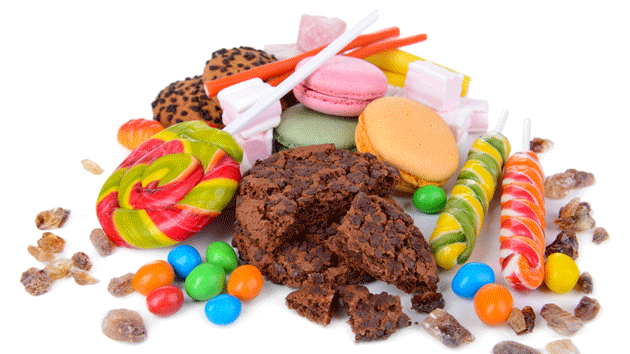Anxiety vs Creativity, Anthropic, AI Theft, Meta, and Sugar
Weekly Review of News in Technology, UX and AI
Here’s the latest news, resources, and use cases from the world of product, UX, AI and technology. Let’s go:
📊 Data Engineering
🫨 Anxiety
🤖 Anthropic
➕ OpenAI
🚫 AI Theft
🤷 Meta Book
🍧 Sugar
Podcast
Lessons in Data Engineering: Scaling, AI, and Open Source with Sandy Ryza
In this episode of Product by Design, Kyle chats with Sandy Ryza, lead engineer on the Dagster project, author, and thought leader in data engineering. Sandy shares his journey through the world of data—from building big data tools at Cloudera to working as a data scientist, product manager, and engineer—and how those experiences led him to help create Dagster, an open-source data orchestration platform.
News and Useful Reads
Anxiety boosts idea quantity but hinders creative originality, study suggests
It feels intuitive, but anxiety hinders creativity. Our anxiety might drive us to more output, but it keeps us from reaching our best output.
A new study published in The Journal of Creative Behavior has found that while anxiety can lead to generating a larger number of ideas, especially when thinking about negative possibilities, it may come at the cost of originality.
Anthropic’s plan to win the AI race
The AI race is intense. ChatGPT continues to dominate, but many other models offer different benefits.
According to chief product officer Mike Krieger, Anthropic doesn’t plan to win the AI race by building a mainstream AI assistant. “I hope Claude reaches as many people as possible,” Krieger told me onstage at the HumanX AI conference earlier this week. “But I think, [for] our ambitions, the critical path isn’t through mass-market consumer adoption right now.”
OpenAI and Google ask for a government exemption to train their AI models on copyrighted material
I suspect this will end well for AI companies and poorly for writers and other creators whose work will be used for AI. Especially given Trump’s penchant to favor businesses over people.
OpenAI is calling on the Trump administration to give AI companies an exemption to train their models on copyrighted material. In a blog post spotted by The Verge, the company this week published its response to President Trump's AI Action Plan.
A lab at the University of Chicago is protecting artists from theft by a new adversary: the machines
Speaking of creators and artists, AI has been profiting off of their creativity and work for years now. But some are fighting back.
But once generative AI went mainstream in 2022, the balance shifted. Suddenly it was possible, with a few keyboard strokes, to create pictures of anything, in any style, including crisp, detailed, photo-like images. That the technology seemed to be getting smarter by the minute only added to the hype — and the money followed. Billions of dollars have been poured into technology that’s steamrolling independent visual artists, voice actors, photographers, writers, and others.
Meta Tries to Bury a Tell-All Book
It seems like Meta doesn’t want anyone to read this book (which will backfire). So it will likely be coming up soon for our monthly book review.
Still, in the context of what we know about Meta already, nothing Wynn-Williams says about the company’s actions and inactions is shockingly new. Careless People is not an investigative work, but a memoir, with the narrative thread being the observed callousness of the company’s leaders.
Other Interesting Finds
The Science Behind Your Sugar Cravings, According to Experts
I admittedly have a sweet tooth. It is a constant struggle to avoid candies and other sweets. Is it just a character flaw? It’s actually much more complicated.
The science surrounding sugar cravings can actually be pretty complicated. That’s because they typically don’t have one single, easily identifiable cause. Rather, tons of different factors can influence when, where, and why you might develop a sudden hankering for a little treat
This Is Your Body on Sugar
We all consume too much sugar. Largely because it is so easily available and in almost everything.
But now that sugars have been processed into more potent forms and added to so many foods and drinks — sodas, candies, breakfast cereals, salad dressings, breads — most of us are getting more sugar than our bodies were meant to handle.



